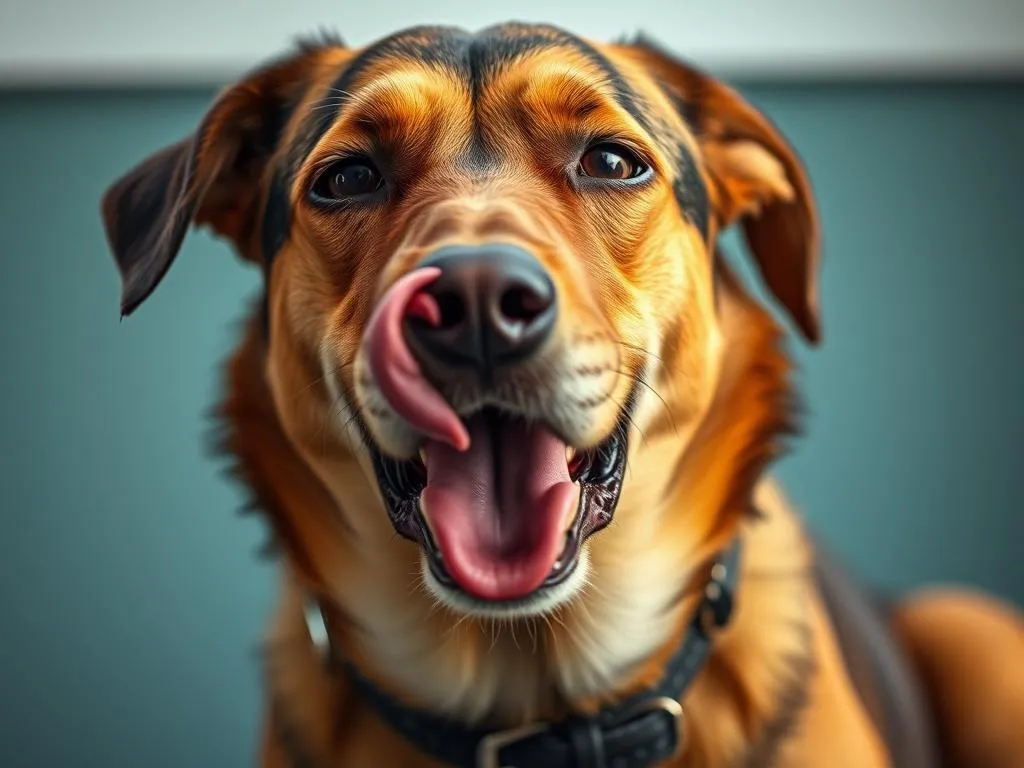
Dogs are known for their quirky behaviors, and one that often raises eyebrows is the act of licking their owner’s belly button. While it can be amusing, it also prompts a lot of questions from dog owners. Understanding why is dog licking my belly button is essential for fostering a healthy relationship with your canine companion. This article delves into the intricacies of dog behavior and seeks to clarify this peculiar licking habit.
Understanding Dog Behavior
The Basics of Canine Behavior
Dogs are fascinating creatures whose behaviors largely stem from their instincts. As descendants of wolves, they possess a variety of innate behaviors that serve specific purposes. For instance, licking is a natural behavior among dogs that has several meanings. A dog’s tongue is not just for eating; it’s a vital tool for communication and bonding.
Licking serves multiple roles in a dog’s life. It is a way to explore their environment, communicate with other dogs, and even show affection to their owners. Recognizing these behaviors can help owners understand their pets better.
Social and Emotional Factors
Licking is often associated with affection and bonding. When dogs lick their owners, it can signify love and trust. This behavior is especially prominent in puppies who lick their mothers to seek comfort and nourishment. As dogs grow, they carry this instinct into their social interactions, using licking as a way to express their feelings.
In addition to affection, licking can also serve as a social signal among dogs. For example, licking can be a way to show submission or appease another dog in a social situation. Understanding these social dynamics can offer insights into why your dog might be drawn to your belly button.
Reasons Dogs Lick Belly Buttons
Instinctual Behavior
One of the primary reasons dogs lick is rooted in instinct. Licking behaviors are remnants of puppyhood, where they would lick their mother while nursing. This instinct serves as a form of comfort and security. As adult dogs, they may exhibit this behavior towards their owners, seeking a similar sense of connection.
Additionally, licking is a way for dogs to explore their environment. Dogs experience the world through their senses, and their tongues help them gather information. The belly button area can have interesting scents and textures that intrigue a dog, leading them to investigate.
Curiosity and Exploration
Dogs are inherently curious creatures. They use their senses—especially smell and taste—to explore their surroundings. The belly button area can attract a dog’s attention due to its unique texture and the various scents that may linger there. Dogs are drawn to the unfamiliar and often investigate by licking.
This exploratory behavior can sometimes be mistaken for something negative, but it’s just a part of a dog’s natural curiosity. They may be simply trying to learn more about you through your unique scent.
Seeking Attention
Another common reason for this behavior is the desire for attention. Dogs are social animals and thrive on interaction with their owners. If your dog has learned that licking your belly button gets a reaction—whether it’s laughter, attention, or even a playful shove—they may continue to do it as a way to engage you.
This behavior can be particularly pronounced in dogs that feel neglected or bored. They may resort to licking as a means to initiate interaction, so it’s essential to be aware of how your responses may reinforce this behavior.
Stress and Anxiety Relief
Licking can also serve as a self-soothing mechanism for dogs. Just like some humans might bite their nails or fidget when anxious, dogs may lick as a way to relieve stress or anxiety. This behavior can be triggered by various factors, including changes in their environment, loud noises, or separation from their owners.
If your dog seems overly anxious or stressed, licking may be their way of coping. It’s crucial to identify the underlying cause of their anxiety and address it accordingly.
Health Implications of Licking
Normal vs. Problematic Licking
While licking is a normal behavior for dogs, it can sometimes become problematic. Healthy licking habits usually occur in moderation and are contextually appropriate. However, if licking becomes excessive or compulsive, it may indicate underlying issues that require attention.
Compulsive licking can lead to skin irritations and infections. Therefore, it’s essential to distinguish between normal and problematic licking behaviors. Monitoring your dog’s licking habits can provide valuable insights into their overall health and well-being.
Potential Health Issues
Excessive licking can be a sign of various health problems. Dogs may lick due to allergies, skin irritations, or even gastrointestinal issues. If your dog is licking your belly button excessively or developing sores or redness in the area, it might be time to consult a veterinarian.
Additionally, certain skin conditions can lead to increased licking, and identifying these issues early can prevent further complications. Keeping an eye on your dog’s licking behavior and any accompanying symptoms can help you catch potential health issues before they escalate.
How to Respond to Belly Button Licking
Assessing the Situation
When faced with the question of why is dog licking my belly button, the first step is to assess the situation. Observe the frequency and context of the licking behavior. Is it a one-time occurrence, or does it happen regularly? Understanding the triggers behind this behavior can help you address it effectively.
Consider the environment and circumstances surrounding the licking. Does it occur when your dog is anxious, bored, or seeking attention? By identifying patterns, you can tailor your response to better meet your dog’s needs.
Redirecting the Behavior
If you find that the licking is excessive or bothersome, consider redirecting the behavior. Engage your dog in alternative activities that can capture their interest. This might include playing with toys, going for a walk, or practicing commands and tricks.
Positive reinforcement can also be effective. Whenever your dog chooses to engage in a desirable behavior instead of licking your belly button, reward them with treats or praise. This approach encourages them to associate positive outcomes with behaviors other than licking.
Consult a Professional
If licking becomes problematic or compulsive, it may be time to consult a professional. A veterinarian or dog behaviorist can help assess the situation and provide tailored guidance. They can also identify any underlying health issues that may be contributing to the behavior.
Seeking professional help is especially important if your dog’s licking leads to physical harm, such as skin infections or irritations. Early intervention can prevent further complications and promote a healthier lifestyle for your furry friend.
Tips for Promoting Healthy Dog Behavior
Training and Socialization
Establishing a solid foundation of training and socialization is essential for promoting healthy dog behavior. Early training helps set clear boundaries and teaches your dog what is acceptable. Socialization exposes them to different environments, people, and other dogs, which can reduce anxiety and encourage positive behaviors.
Reinforcing good behaviors through consistency and positive reinforcement is key. Reward your dog for following commands and engaging in appropriate behaviors, helping them understand what actions are desired.
Creating a Positive Environment
A stress-free and engaging environment is crucial for your dog’s well-being. Ensure that your home is enriched with toys, activities, and opportunities for play. Regular exercise is also vital; daily walks and interactive playtime can keep your dog mentally stimulated and physically active.
Consider incorporating puzzle toys or training games that challenge your dog’s mind. These activities can divert their attention away from unwanted licking behavior and promote a sense of accomplishment and satisfaction.
Conclusion
Understanding why is dog licking my belly button involves exploring the various factors that contribute to this behavior. From instinctual actions to emotional expressions and curiosity, licking serves multiple purposes in a dog’s life. While it may be a lighthearted quirk, it can also signal deeper emotional or health-related issues.
As responsible dog owners, it’s essential to observe and understand our pets’ behaviors. By fostering a strong bond through awareness and care, we can ensure our canine companions lead happy and healthy lives. If you ever find yourself questioning your dog’s behavior, remember that patience, understanding, and proper guidance can strengthen your relationship and improve your dog’s overall well-being.









